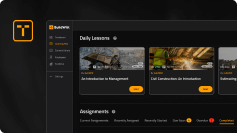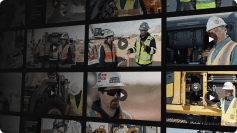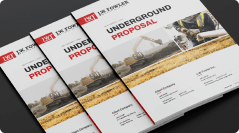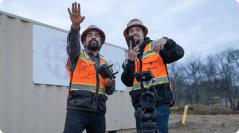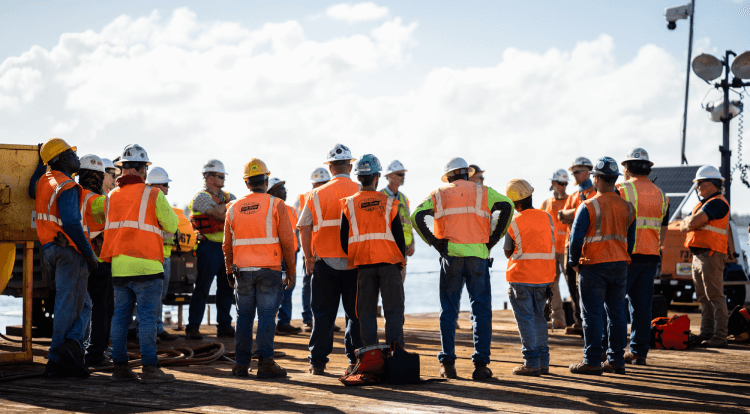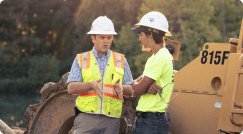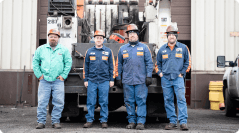How to Become a Field Engineer
Written by Jason Schroeder
January 26, 2023
For many people, field engineering is their first introduction to the Dirt World, right out of college. Or perhaps it's their first step toward a management role.
However, more people can say what a project engineer is and does than can say the same for a field engineer. (If the term field engineer is not used in your organization, you may know it by another name, such as a grade checker or survey tech.)
Jason Schroeder says, "Field engineering I think is gonna make the biggest difference for us." That's because From an industry standpoint, superintendents and project managers are expected to be really solid builders. "And so the question that I've been forced to ask, and then the realization I've had, is that they have to have a builder experience."
For Schroeder, being a project manager or a superintendent is not a builder experience. “It's a leader, planner, manager experience," he says. "Even if we're telling people to do things, or interpreting plans or something, it's not a builder experience."
Piecing things together
The position of field engineer gives a person one to four years "to piece things together," as Jason puts it. For someone who's right out of school, who knows the concepts ”like how to think in a coordinate geometry system," it's critical to move from thinking theoretically to actually being in Civil 3D or AutoCAD.
The field engineering role "programs people's minds to get into that builder state, where they're not only thinking about why am I doing something? and what am I going to do? and how am I going to do it? but where do things go?"
"People come from college or forema, and they go right into superintendent, right into project manager. They're missing that experience to go think in that visual 3D world. They're missing that coordinate system. They're missing that opportunity to use technology and to learn those fundamental skills," says Jason.
Gaining builder experience
As Randy Blount says, "The best superintendents, best project managers, almost every one of them had a time as a grade checker or field engineer. It's so hard to look at a set of plans and identify some of the issues, if you haven't been out there dealing with them."
In situations where tolerances can be as little as a quarter inch, getting real-world experience of using the math and the skills you've learned can make all the difference.
Quality ”and getting things right the first time" are other areas the field engineer impacts. In the field engineering world, as Jason notes, "It's double-check it with a different person from a different angle, a different approach, a different technology, and we have to have a second set of eyes."
Aside from the work itself, if you don't spend time getting real-world experience in a variety of builder roles, your own career path is also going to suffer.
"Maybe you just kill it on the motor grader and then you get promoted to foreman or superintendent without having [spent] time really grade checking," Randy says. "We could see very quickly they stall in their careers, or the time to get to that next level is longer, because there's something about understanding the fundamentals of plans, of quality, of the things to be looking for. And then also understanding really what everybody should be doing."
Another aspect of the field engineering role is the mentoring and training opportunities it provides. Programs don't have to be elaborate: Simply the act of having somebody else in the trench with you who's laying pipe, practicing a skill, causes teaching opportunities to arise.
Having an effective field engineering program is the best training ground to build future supers and PMs. Jason says, "We have to be developing these people." Being a field engineer helps individuals gain the experience to address quality issues and can be a pathway to leadership.
Takeaways
For Randy, "The real keystone to a successful career is field engineering, grade checking, whatever we call that."
Jason concludes, "We build people that build things."In looking at those people, he would ask:
- Did they get a chance with lift drawings? With Civil 3D?
- Did they get a chance with the automatic level?
- Did they get a chance with the robotic?
- Did they get a chance to work with the foreman out in the field and experience that?
- Did they get a chance to go install components and measure and be responsible for not just how we're doing something, but the actual location, the builder aspects?
"And I would just say if we haven't filled these folks up with good experience, that's going to hurt them later on, which will then hurt what we're doing in the field," Jason says.
The bottom line according to Jason is, "I have never seen a company spend time and have a good field engineering program and financially suffer from it."

